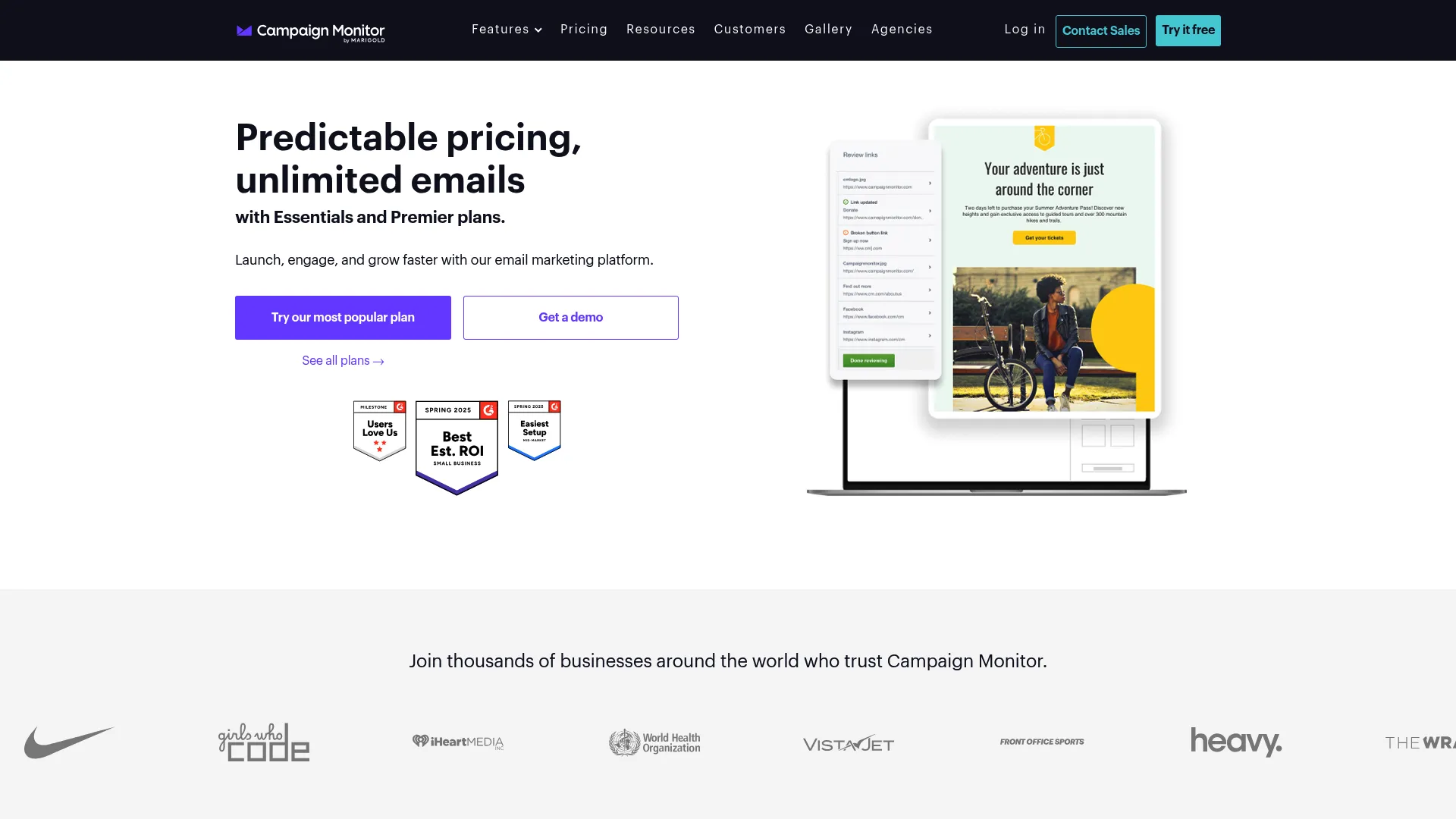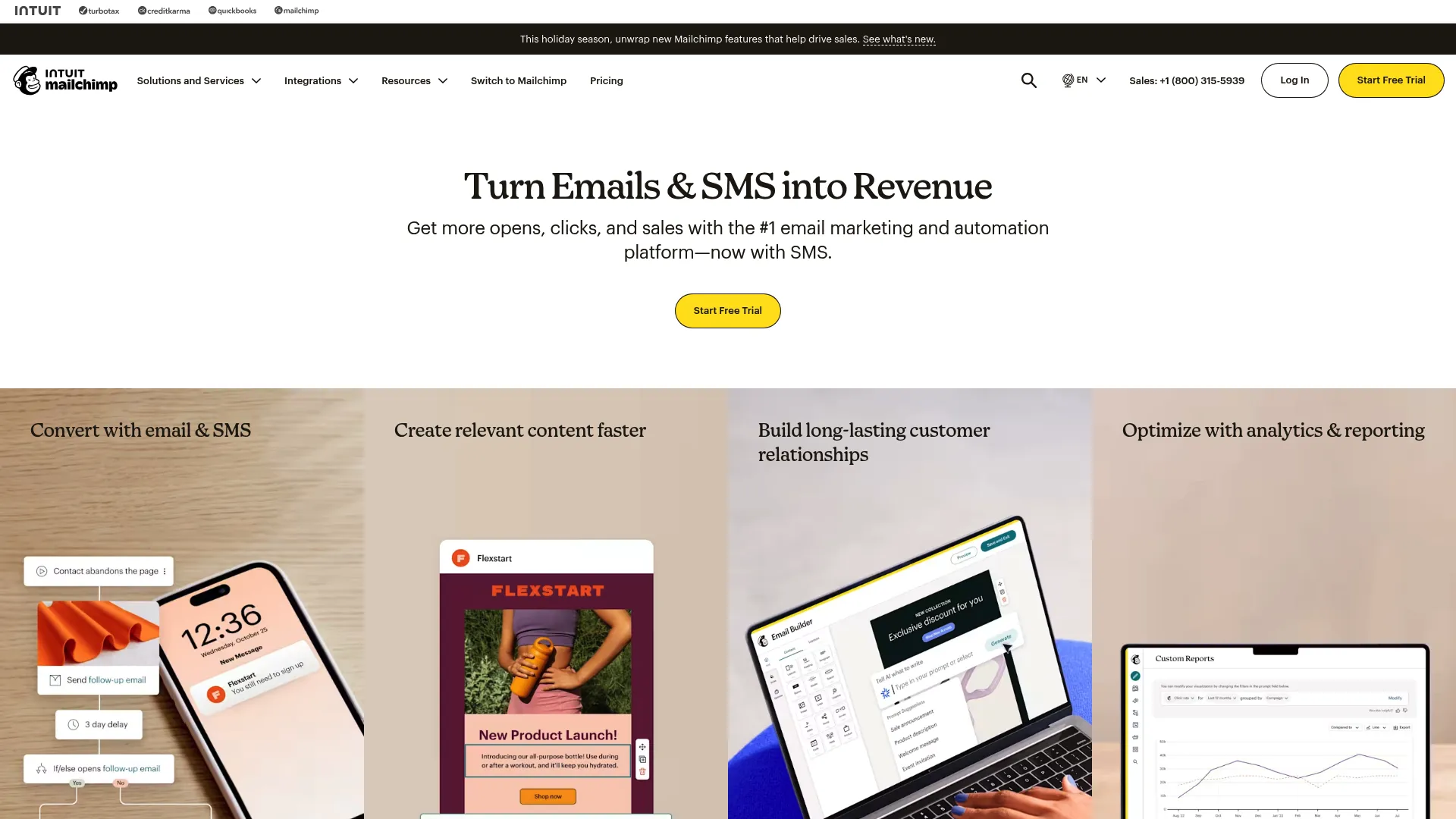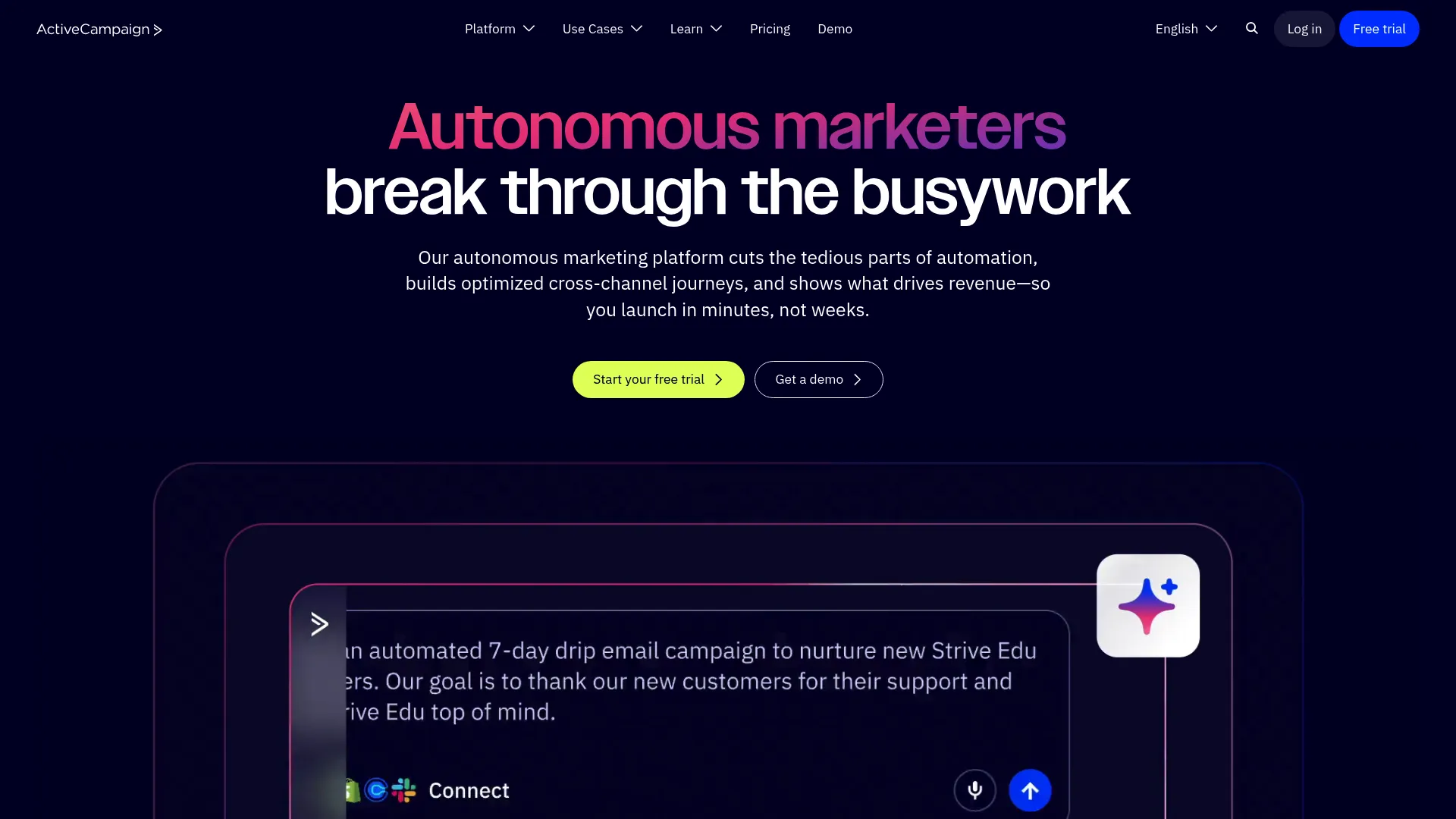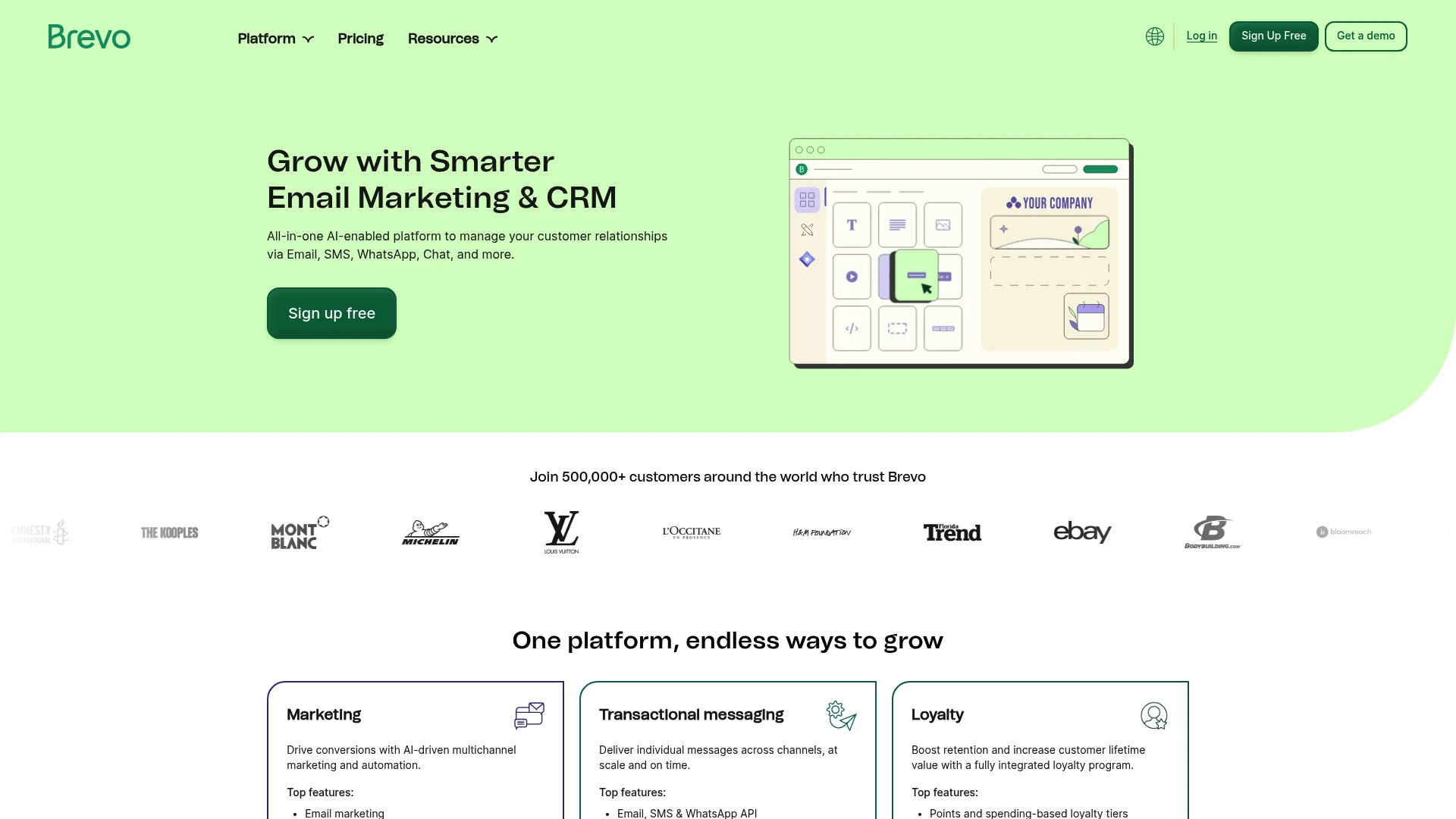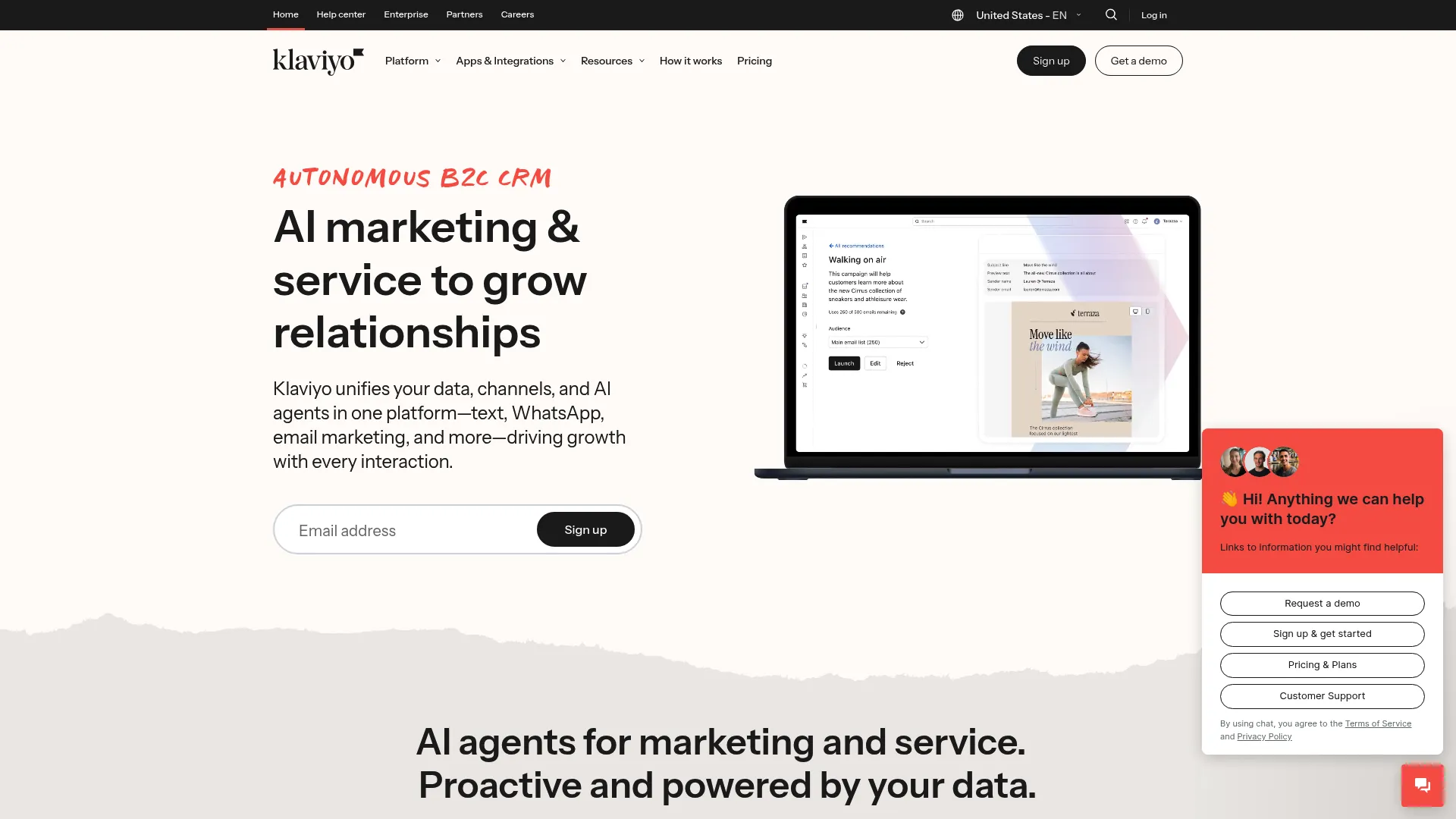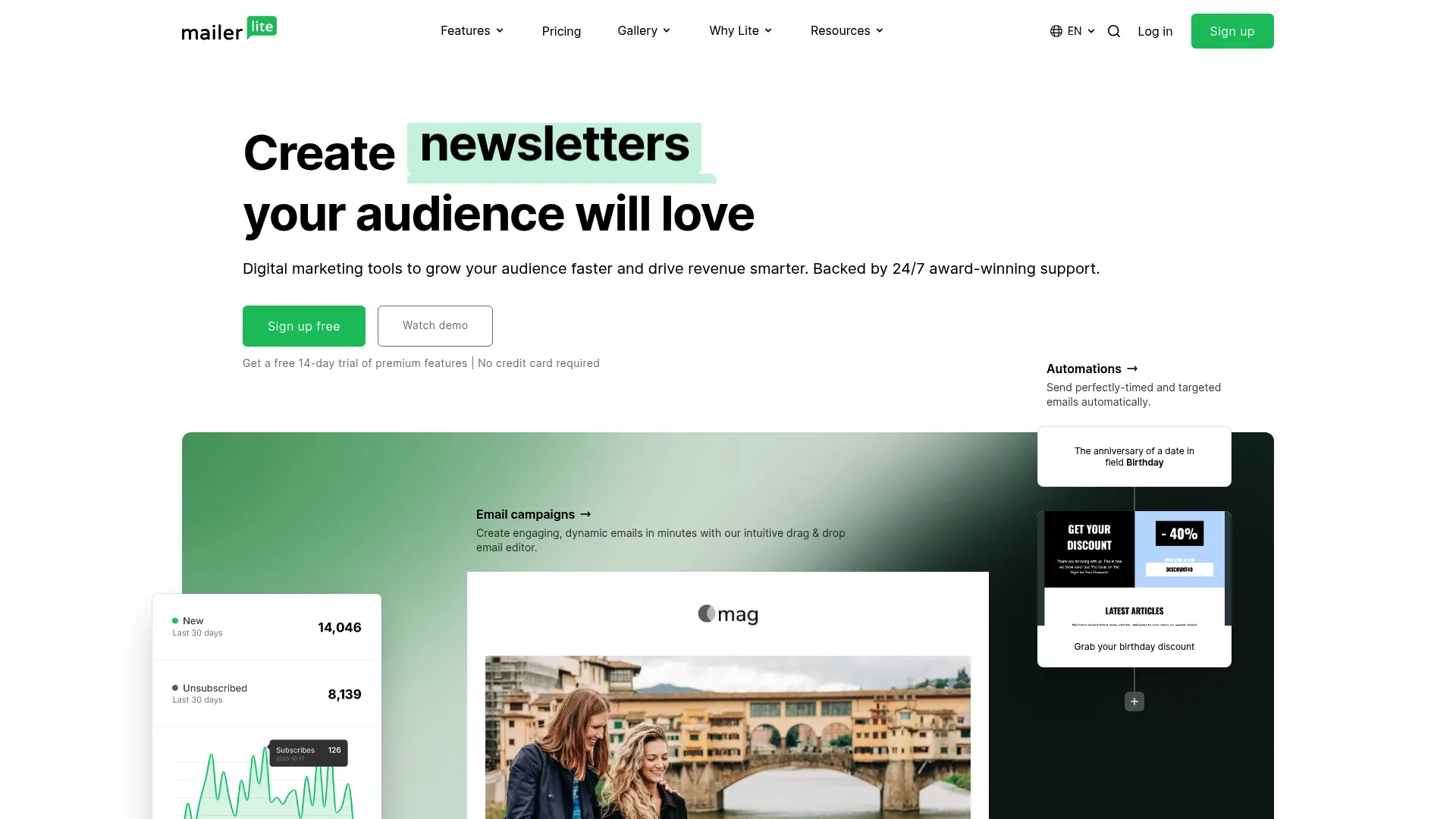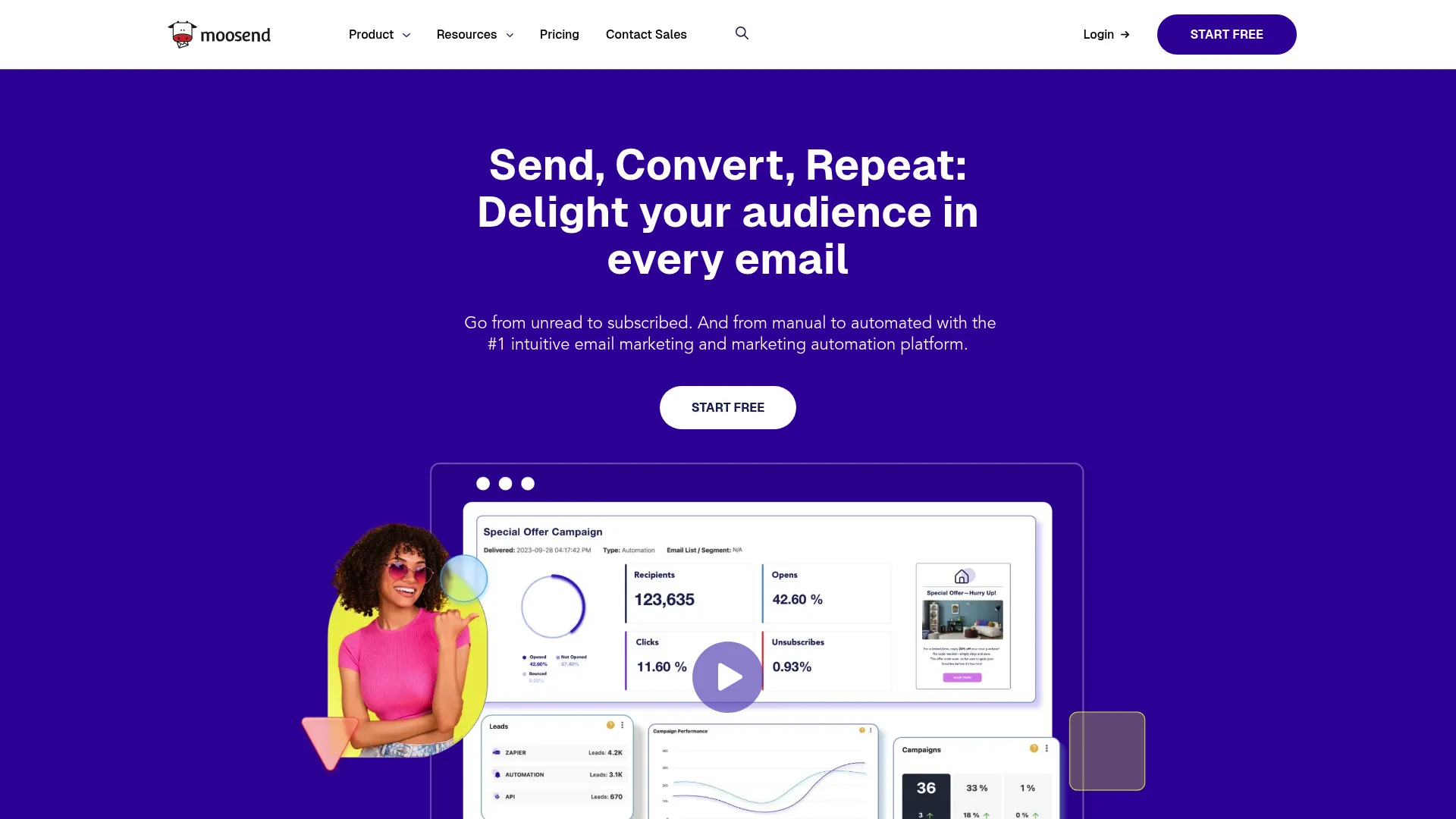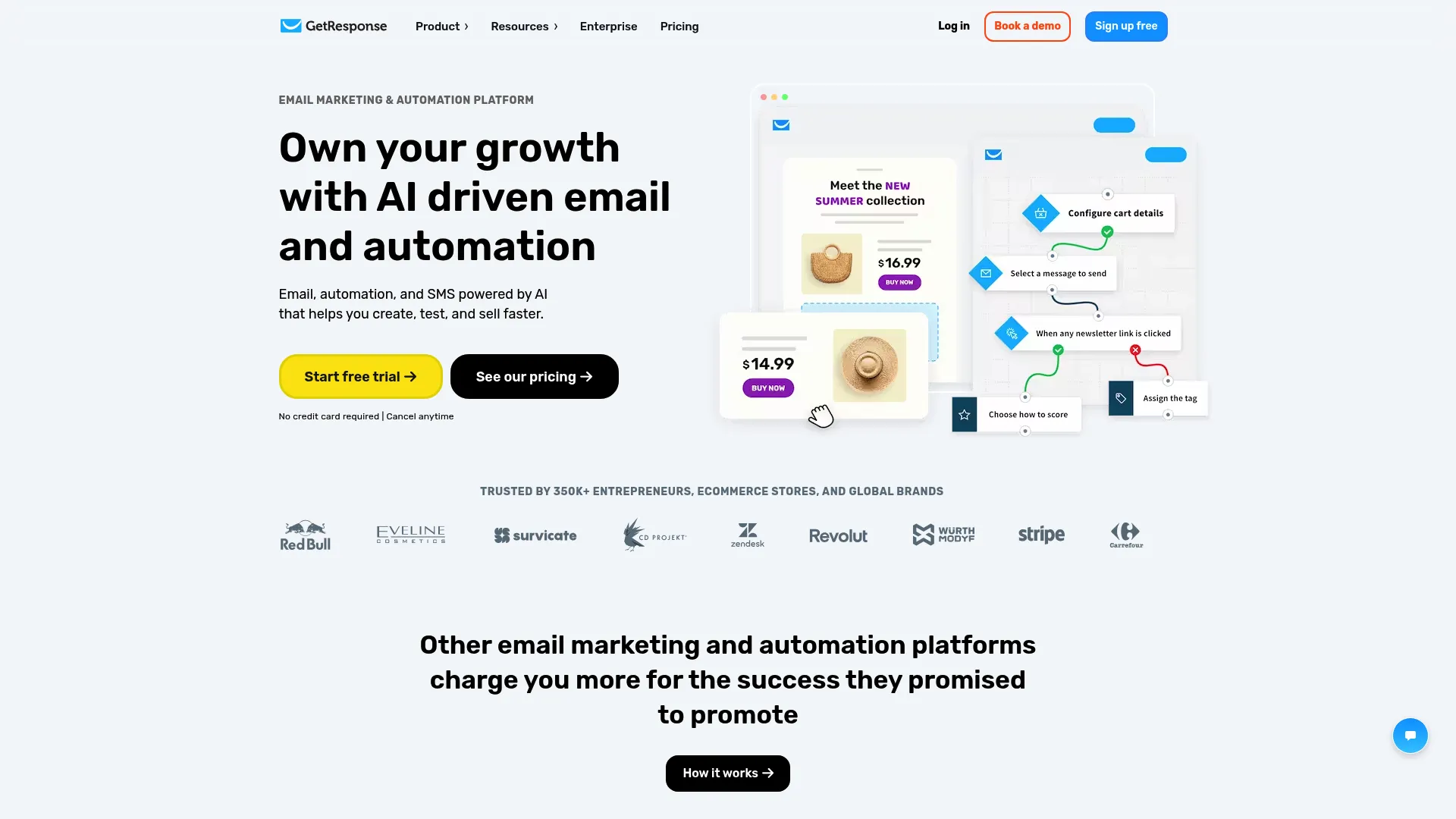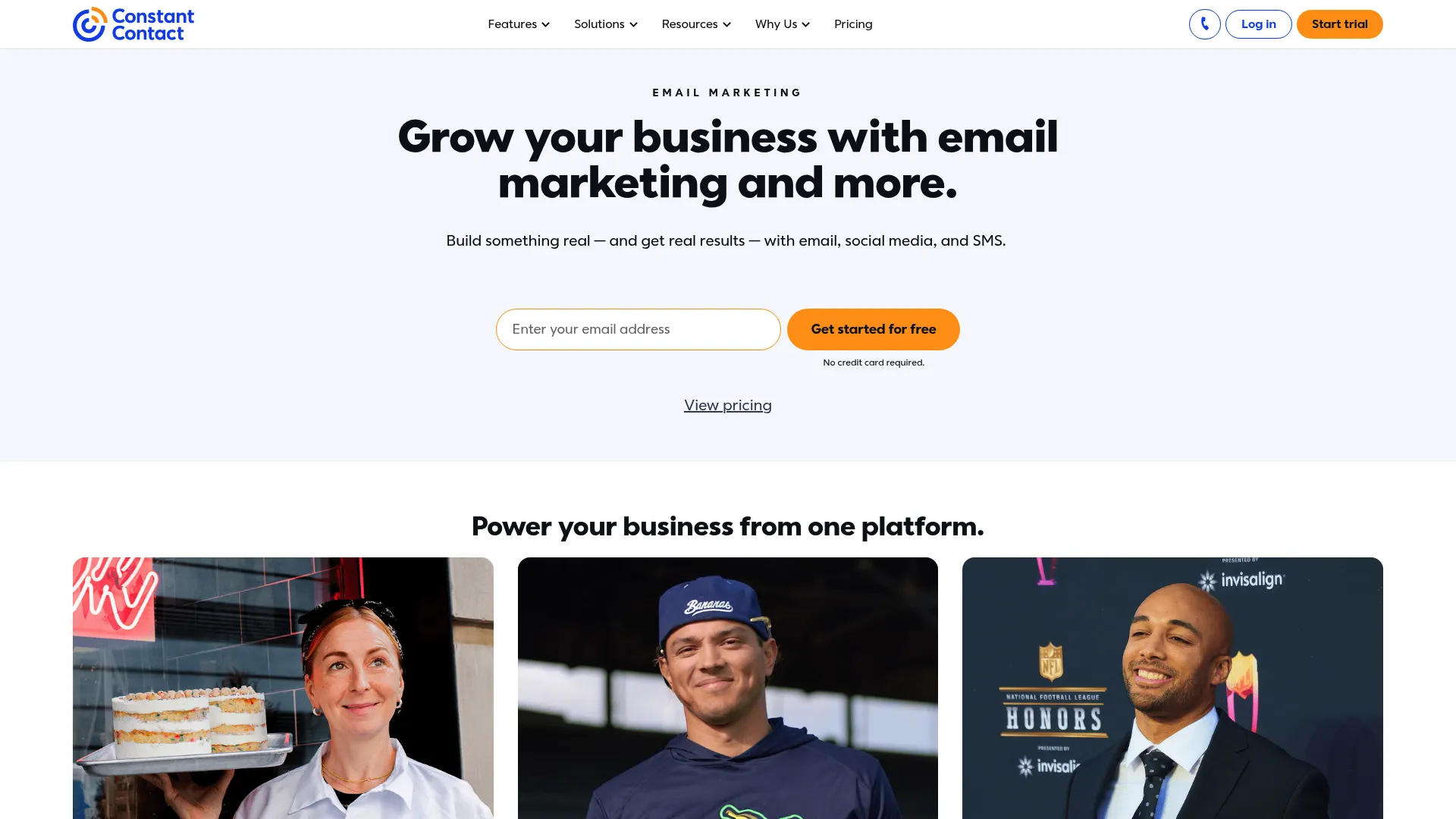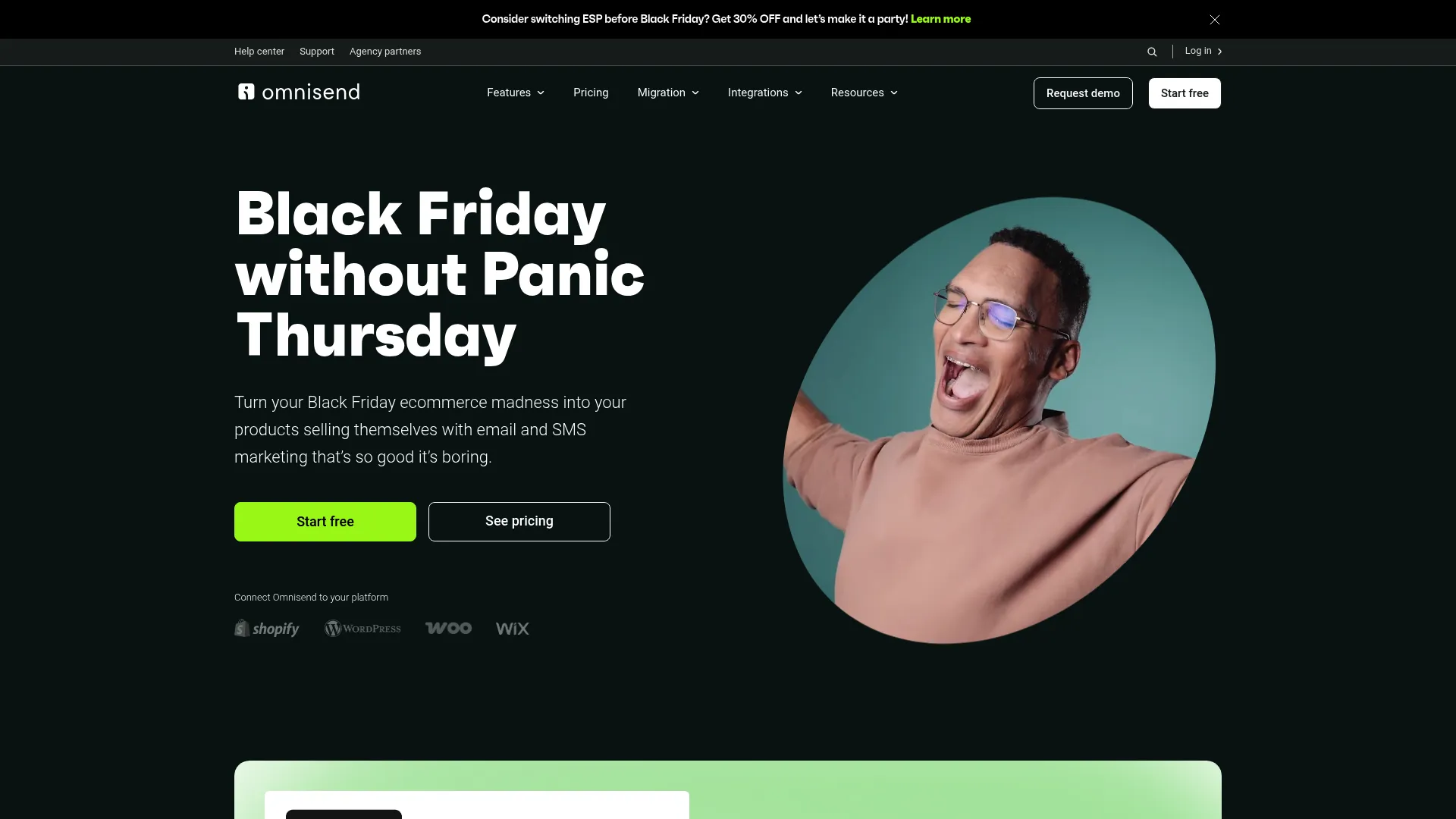ConvertKit users are jumping ship at record rates—with over 40% of email marketers switching platforms annually according to recent industry data. I’ve been there myself, watching monthly costs climb while design options remained frustratingly basic. Last month, I helped Sarah from a local bakery migrate off ConvertKit after her bill jumped to $180/month for features that barely worked. She was stuck with emails that looked like they were designed in 2015, and her abandoned cart sequences kept breaking.
After helping dozens of businesses migrate from ConvertKit over the past year, I’ve identified the platforms that truly deliver on their promises. The email marketing landscape has evolved dramatically, and ConvertKit’s text-heavy approach no longer cuts it for brands demanding visual storytelling and advanced automation. Whether you’re hitting subscriber limits, craving better design flexibility, or need more sophisticated analytics, this comprehensive breakdown will help you find your perfect match among the top convertkit alternatives.
Table of Contents
- TL;DR: Quick Platform Comparison
- Comparison Table
- Criteria Breakdown Summary
- Campaign Monitor by Marigold
- Mailchimp
- ActiveCampaign
- Brevo (formerly Sendinblue)
- Klaviyo
- MailerLite
- Moosend
- GetResponse
- Constant Contact
- Omnisend
- Notable Mentions
- FAQ
- Final Thoughts
TL;DR: Quick Platform Comparison
From what I’m seeing in the trenches, busy marketers need immediate platform recommendations based on specific business needs and priorities. Here’s the real deal after testing each platform extensively:
Best Overall Design: Campaign Monitor leads with superior visual capabilities and professional templates that actually look modern. Their drag-and-drop builder transforms complex design concepts into polished campaigns without requiring a design degree.
E-commerce Powerhouse: Klaviyo dominates with predictive analytics and revenue attribution that connects every email to actual sales data. If you’re selling products online, this platform pays for itself through better targeting.
Budget Champion: MailerLite delivers premium features at startup-friendly prices. I’ve seen small businesses achieve enterprise-level results without breaking their marketing budget.
Automation Master: ActiveCampaign excels in complex workflow management and CRM integration. Their AI-powered automation builder creates sophisticated customer journeys that adapt based on subscriber behavior.
Multi-Channel Leader: Brevo combines email, SMS, and chat in one affordable platform. Managing customer communications across multiple channels becomes effortless with their unified inbox approach.
Beginner-Friendly: Constant Contact offers excellent support with straightforward functionality. New marketers can launch professional campaigns within hours of signing up.
Enterprise Solution: Mailchimp provides comprehensive marketing ecosystem for growing teams. Their extensive integration library connects with virtually any business tool you’re already using.
Value Pick: Moosend delivers advanced automation at unbeatable price points. Their AI-enhanced features rival platforms costing three times more.
All-in-One: GetResponse includes webinar hosting and course creation tools. Educational businesses can manage their entire marketing and content delivery from one dashboard.
E-commerce Specialist: Omnisend focuses exclusively on retail marketing automation with pre-built workflows for common shopping scenarios.
Comparison Table
| Platform | Best For | Starting Price | Free Plan | Email Design | Automation | Deliverability | Support |
|---|---|---|---|---|---|---|---|
| Campaign Monitor | Professional Design | $10.80/month | Limited | ⭐⭐⭐⭐⭐ | ⭐⭐⭐⭐ | ⭐⭐⭐⭐⭐ | ⭐⭐⭐⭐⭐ |
| Mailchimp | All-in-One Marketing | $13/month | Yes | ⭐⭐⭐⭐ | ⭐⭐⭐⭐ | ⭐⭐⭐⭐ | ⭐⭐⭐ |
| ActiveCampaign | Advanced Automation | $15/month | No | ⭐⭐⭐⭐ | ⭐⭐⭐⭐⭐ | ⭐⭐⭐⭐ | ⭐⭐⭐⭐ |
| Brevo | Multi-Channel Value | $9/month | Yes (Unlimited contacts) | ⭐⭐⭐⭐ | ⭐⭐⭐⭐ | ⭐⭐⭐⭐ | ⭐⭐⭐⭐ |
| Klaviyo | E-commerce Intelligence | $45/month | Limited | ⭐⭐⭐⭐ | ⭐⭐⭐⭐⭐ | ⭐⭐⭐⭐⭐ | ⭐⭐⭐⭐ |
| MailerLite | Simplicity + Power | $13/month | Yes (1,000 subscribers) | ⭐⭐⭐⭐ | ⭐⭐⭐⭐ | ⭐⭐⭐⭐ | ⭐⭐⭐⭐⭐ |
| Moosend | AI-Enhanced Automation | $9/month | 30-day trial | ⭐⭐⭐⭐ | ⭐⭐⭐⭐⭐ | ⭐⭐⭐⭐ | ⭐⭐⭐⭐ |
| GetResponse | Educational Integration | $19/month | No | ⭐⭐⭐⭐ | ⭐⭐⭐⭐ | ⭐⭐⭐⭐⭐ | ⭐⭐⭐⭐ |
| Constant Contact | Event Management | $12/month | No | ⭐⭐⭐ | ⭐⭐⭐ | ⭐⭐⭐⭐ | ⭐⭐⭐⭐⭐ |
| Omnisend | E-commerce Multi-Channel | $16/month | Yes | ⭐⭐⭐⭐ | ⭐⭐⭐⭐⭐ | ⭐⭐⭐⭐ | ⭐⭐⭐⭐ |
Criteria Breakdown Summary
Understanding evaluation metrics ensures you select a platform that aligns with your specific marketing goals, technical requirements, and budget constraints. Choosing the right convertkit alternatives requires systematic evaluation across seven critical dimensions.
Advanced email design capabilities determine whether you can create visually compelling campaigns that reflect your brand identity. I’ve tested every drag-and-drop builder, template library, and customization option to identify which platforms actually deliver professional results.
Automation and workflow flexibility impacts your ability to nurture leads through complex customer journeys. Some platforms offer basic drip sequences, while others provide sophisticated behavioral triggers and conditional logic that adapts to subscriber actions.
Analytics depth separates basic platforms from sophisticated marketing tools that drive real business insights. Revenue attribution, customer lifetime value calculations, and predictive analytics help you understand which campaigns actually generate profit.
Pricing scalability affects long-term sustainability as your subscriber base grows. Hidden costs, feature restrictions, and sudden price jumps can derail your marketing budget without warning.
Integration ecosystem compatibility ensures seamless connection with your existing tech stack. CRM synchronization, e-commerce platform connections, and third-party app integrations determine how well your email marketing fits into your broader business operations.
Customer support quality becomes crucial during platform migrations and critical campaign periods. I’ve tested response times, solution quality, and resource availability across all platforms to identify which teams actually solve problems.
Deliverability performance ultimately determines whether your carefully crafted emails actually reach subscriber inboxes. Reputation management, authentication protocols, and sender optimization separate reliable platforms from those that struggle with spam filters.
Each platform receives ratings from 1-5 across these criteria, providing objective comparison data for informed decision-making among the best convertkit alternatives available today.
Campaign Monitor by Marigold
Campaign Monitor stands out as the premium choice for businesses prioritizing professional email design and reliable deliverability, though higher-tier pricing may challenge budget-conscious users. Honestly, if you want emails that don’t look like they were designed in 2015, this is where you start looking.
Best Known for Professional Design Excellence
Campaign Monitor has built its reputation on delivering enterprise-grade email design tools without requiring coding expertise. The platform consistently ranks highest for visual customization and template quality among email marketing solutions.
Their drag-and-drop builder transforms complex design concepts into polished campaigns. You’ll find zero learning curve frustrations here—the interface feels intuitive from day one. The template library spans every industry imaginable, with designs that actually look modern (unlike ConvertKit’s dated options).
Features That Set Campaign Monitor Apart
Campaign Monitor’s feature set focuses on professional execution rather than overwhelming complexity. Their prebuilt automated journeys handle welcome series, abandoned cart recovery, and event-triggered campaigns without manual setup headaches.
Send time optimization uses machine learning to identify when individual subscribers are most likely to engage. Dynamic content personalization goes beyond basic name insertion, adapting entire email sections based on subscriber behavior and preferences.
The link review tool catches broken links before campaigns launch—a small feature that prevents major embarrassment. Advanced analytics include revenue attribution, helping you connect email performance directly to business outcomes.
Pros
Campaign Monitor excels where ConvertKit falls short. The visual email builder creates professional campaigns without design skills or coding knowledge. Deliverability rates consistently outperform industry averages, ensuring your messages reach intended recipients.
Agency-friendly features include unified dashboards for managing multiple client accounts. Customer support responds quickly with knowledgeable solutions rather than generic troubleshooting scripts. Template management streamlines team collaboration on campaign creation.
Cons
Higher-tier plans can strain budgets, especially for smaller businesses testing email marketing waters. Free options are limited compared to competitors offering generous trial periods. Some advanced automation features require Premier plan upgrades, adding unexpected costs.
The Reality Check
Look, Campaign Monitor isn’t cheap, but you get what you pay for. I’ve had clients switch just for the design capabilities and never look back. If you’re sending emails that represent your brand, the extra cost usually pays for itself in credibility alone.
Pricing
Campaign Monitor starts at $10.80/month for the Lite plan with annual billing. Essentials plans begin at $26.10/month, while Premier features cost $143.10/month. Visit Campaign Monitor to explore current pricing options.
Mailchimp
Mailchimp offers comprehensive marketing tools beyond email, making it ideal for businesses seeking an all-in-one solution, though costs can escalate quickly with subscriber growth. It’s like the Swiss Army knife of email marketing—sometimes that’s exactly what you need, sometimes it’s overkill.
Best Known for All-in-One Marketing Platform
Mailchimp has evolved from simple email marketing into a comprehensive business growth platform. Their extensive template library and integration ecosystem make them a go-to choice for businesses wanting everything under one roof.
The platform’s AI-powered content generation through Intuit Assist helps overcome writer’s block and creative bottlenecks. You can build entire customer journeys with up to 200 touchpoints, creating sophisticated nurture sequences that rival enterprise solutions.
Features That Define Mailchimp’s Value
Mailchimp’s customer journey builder handles complex automation workflows that would challenge most platforms. Their website and landing page builder eliminates the need for separate tools, streamlining your marketing tech stack.
Multichannel marketing capabilities extend beyond email to social ads and direct mail postcards. Advanced A/B and multivariate testing options help optimize every campaign element. The 300+ integrations connect with virtually any business tool you’re already using.
The Real Talk on Mailchimp
Pros: Mailchimp’s template library offers unmatched variety and professional quality. Automation capabilities rival dedicated marketing automation platforms while remaining user-friendly. Analytics include industry benchmarking, providing context for your performance metrics.
Cons: Pricing increases rapidly as subscriber counts grow, potentially pricing out smaller businesses. Lower-tier plans restrict automation features, forcing upgrades for basic functionality. The platform can overwhelm beginners with its extensive feature set.
Here’s
Here’s the thing about Mailchimp—their customer support has been hit-or-miss lately. Some users report slow response times and generic solutions, which is frustrating when you’re paying premium prices.
Who Should Use Mailchimp
If you need landing pages, social ads, and email marketing all in one place, Mailchimp makes sense. Just watch those costs as you scale—I’ve seen bills jump from $50 to $300 seemingly overnight.
Pricing
Mailchimp offers a free plan with basic features. Essentials plans start at $13/month, Standard at $20/month, and Premium at $350/month. Explore Mailchimp pricing for detailed feature comparisons.
ActiveCampaign
ActiveCampaign dominates the automation space with sophisticated CRM integration and behavioral tracking, though its complexity may overwhelm users seeking simple email marketing solutions. If you love automation and data, you’ll probably fall in love with this platform.
Best Known for Advanced Marketing Automation
ActiveCampaign has earned its reputation as the automation powerhouse among email marketing platforms. Their AI-powered automation builder creates complex customer journeys that adapt based on subscriber behavior and engagement patterns.
The integrated CRM functionality transforms email marketing into comprehensive customer relationship management. Deal tracking and lead scoring help sales teams prioritize prospects while marketing automation nurtures leads through sophisticated funnels.
Features That Power ActiveCampaign’s Success
ActiveCampaign’s automation builder uses artificial intelligence to optimize send times and content delivery. Advanced CRM features include deal tracking, lead scoring, and win probability calculations that guide sales strategies.
I set up a client’s welcome sequence in ActiveCampaign last week—7 emails over 14 days that pulled in $3,200 in sales from 150 new subscribers. Try doing that with ConvertKit’s basic automation.
Predictive sending optimization analyzes individual subscriber behavior to determine optimal delivery times. Cross-channel messaging encompasses email, SMS, and WhatsApp communications from a single platform. The 870+ native integrations connect with virtually any business tool.
The Honest Assessment
Pros: ActiveCampaign offers the most sophisticated automation capabilities in the email marketing space. Integrated CRM functionality eliminates the need for separate sales tools. Deep segmentation and behavioral tracking enable highly personalized campaigns.
The platform excels at complex sales funnels and multi-touch attribution. Reporting and analytics provide detailed insights into customer journey performance and revenue attribution.
Cons: The learning curve can be steep for beginners unfamiliar with marketing automation concepts. Costs increase significantly as you add advanced features and integrations. The platform may be overwhelming for businesses with simple email marketing needs.
ActiveCampaign doesn’t offer a permanent free plan, requiring immediate investment for testing purposes.
Bottom Line
If you’re serious about automation and have the time to learn it properly, ActiveCampaign is worth every penny. Just don’t expect to master it in a weekend—this thing has layers.
Pricing
ActiveCampaign’s Starter plan begins at $15/month, Plus at $49/month, Pro at $79/month, and Enterprise at $145/month. Check ActiveCampaign pricing for current feature details.
Brevo (formerly Sendinblue)
Brevo excels in multi-channel marketing with generous free plan offerings and unlimited contact storage, making it an excellent choice for budget-conscious businesses seeking comprehensive communication tools. Honestly, their free plan is so good it makes you wonder how they make money.
Best Known for Multi-Channel Value
Brevo has repositioned itself as a comprehensive customer communication platform extending far beyond traditional email marketing. Their universal inbox manages email, SMS, chat, and social media interactions from a single dashboard.
The platform’s generous free plan includes unlimited contacts—a significant advantage over competitors who limit subscriber counts. Predictive sending with AI optimization ensures messages reach subscribers at optimal engagement times.
Features That Make Brevo Stand Out
Brevo’s universal inbox consolidates customer communications across multiple channels, streamlining team collaboration and response management. SMS and WhatsApp marketing capabilities extend reach beyond traditional email campaigns.
Mobile wallet marketing creates digital loyalty cards and promotional passes for enhanced customer engagement. Built-in CRM functionality tracks customer interactions and purchase history. The landing page builder creates conversion-focused pages without additional tools.
The Real Deal on Brevo
Pros: Brevo’s free plan offers exceptional value with unlimited contacts and 300 daily emails. Multi-channel marketing capabilities provide comprehensive customer communication options. Affordable pricing scales well as businesses grow.
Strong deliverability rates ensure messages reach intended recipients. Automation features handle complex customer journeys without overwhelming complexity.
Cons: A/B testing is limited to higher-tier plans, restricting optimization capabilities for budget users. The email builder lacks sophistication compared to design-focused competitors. Brevo branding appears on paid plans unless you purchase removal add-ons.
Who This Works For
Perfect for small businesses that need email, SMS, and chat all in one place without breaking the bank. I’ve recommended it to dozens of startups who later scaled up without switching platforms.
Pricing
Brevo offers a free plan with 300 daily emails and unlimited contacts. Starter plans begin at $9/month, Standard at $18/month, and Professional at $499/month. Explore Brevo pricing for detailed feature comparisons.
Klaviyo
Klaviyo dominates e-commerce email marketing with advanced customer data analytics and predictive insights, though its specialized focus and premium pricing may not suit non-retail businesses. If you’re selling stuff online and not using Klaviyo, you’re probably leaving money on the table.
Best Known for E-commerce Intelligence
Klaviyo has become the gold standard for e-commerce email marketing through its sophisticated customer data platform and predictive analytics capabilities. The platform transforms purchase behavior into actionable marketing insights.
Their unified customer data platform creates comprehensive profiles combining email engagement, purchase history, and website behavior. Predictive analytics calculate customer lifetime value and churn probability, enabling proactive retention strategies.
When evaluating convertkit alternatives, Klaviyo stands apart for its e-commerce specialization and data-driven approach to customer relationships.
Features That Define Klaviyo’s E-commerce Focus
Klaviyo’s predictive analytics engine forecasts customer lifetime value and identifies high-risk churn candidates. Dynamic product recommendations personalize emails based on browsing and purchase history. The native reviews platform collects and displays customer feedback.
I initially thought Klaviyo would be overkill for most businesses. Boy, was I wrong. Even my local restaurant client saw a 40% bump in repeat orders once we set up their post-visit email sequence.
Advanced segmentation uses purchase behavior, engagement patterns, and predictive metrics to create highly targeted campaigns. Multi-channel campaigns coordinate email, SMS, and push notifications for cohesive customer experiences.
The Honest Truth
Pros: Klaviyo offers exceptional e-commerce integration with major platforms including Shopify and WooCommerce. Advanced predictive analytics provide insights unavailable in general email marketing platforms. Customer segmentation capabilities are unmatched in sophistication.
High deliverability rates ensure important transactional and promotional emails reach customers. Automation capabilities handle complex e-commerce scenarios including abandoned cart recovery and post-purchase sequences.
Cons: Pricing can be expensive for businesses without significant e-commerce revenue. The platform’s complexity may overwhelm users unfamiliar with advanced analytics concepts. Limited free plan restricts testing capabilities.
SMS costs can accumulate quickly with high-volume messaging campaigns.
Real Talk
If you’re doing e-commerce and not using Klaviyo, you’re probably leaving money on the table. Just saying. The data insights alone are worth the price of admission.
Pricing
Klaviyo offers a free plan limited to 500 emails monthly. Email plans start at $45/month, while Email + Mobile begins at $60/month. View Klaviyo pricing details for comprehensive feature breakdowns.
MailerLite
MailerLite combines user-friendly design with powerful automation features at competitive prices, making it an ideal choice for small businesses and creators seeking professional email marketing without complexity. This is my go-to recommendation for people who want something that just works.
Best Known for Simplicity Meets Power
MailerLite has carved out a unique position by delivering advanced email marketing capabilities through an incredibly intuitive interface. Their approach eliminates the overwhelming complexity that plagues many competitors while maintaining professional-grade functionality.
The drag-and-drop editor includes 70+ content blocks, enabling sophisticated email designs without technical expertise. Their website builder extends beyond email marketing, offering blogs and SEO controls for comprehensive online presence management.
Features That Drive MailerLite’s Appeal
MailerLite’s digital products feature enables creators to sell directly through email campaigns, eliminating third-party payment processors. Paid newsletter functionality helps content creators monetize their audience through subscription models.
Smart sending uses machine learning to optimize delivery times for individual subscribers. A/B testing and auto-resend capabilities maximize campaign performance through data-driven optimization. Collaborative team tools streamline workflow management for growing businesses.
Why I Keep Recommending This
Pros: MailerLite delivers exceptional value with feature-rich plans at affordable price points. The intuitive interface welcomes beginners while providing advanced capabilities for experienced marketers. Their generous free plan supports up to 1,000 subscribers without hidden limitations.
Customer support consistently receives high ratings for responsiveness and helpfulness. Automation capabilities handle complex sequences without overwhelming users with unnecessary complexity.
Cons: Advanced features require upgrades to higher-tier plans, potentially limiting budget-conscious users. Native SMS capabilities are absent, requiring third-party integrations for multi-channel campaigns. Enterprise-level features lag behind specialized platforms.
Bottom Line
Perfect for small businesses, creators, and anyone who wants professional results without the headache. I’ve moved three clients here in the past six months, and none of them are looking back.
Pricing
MailerLite’s free plan supports 1,000 subscribers with essential features. Paid plans start at $13/month with advanced capabilities. Check MailerLite pricing for current plan details.
Moosend
Honestly? Moosend is one of those platforms that makes you wonder why anyone pays premium prices for email marketing. I stumbled across them about eight months ago when a client’s budget got slashed, and I needed something that wouldn’t make their campaigns look amateur.
Best Known for AI-Enhanced Automation
Here’s the thing about Moosend—they’re not trying to be everything to everyone, and that’s exactly why they work so well. Their AI stuff isn’t just marketing fluff either. I watched it suggest subject lines that outperformed my “expert” copywriting by 23%. Humbling, but I’ll take the win.
Customer lifecycle mapping with RFM analysis (Recency, Frequency, Monetary) provides deep insights into subscriber behavior patterns. The integrated SMTP server handles transactional emails, eliminating the need for separate services.
Features That Actually Matter
Look, unlimited emails is huge. I’ve got a client who sends 50,000 emails monthly (don’t ask me how they built that list), and most platforms would charge them $300+. Moosend? Still under $50.
The e-commerce AI is surprisingly smart too. It recommended products to my client’s customers that I never would have thought of, and their average order value jumped 18% in two months.
Unlimited lists and tags provide organizational flexibility without artificial restrictions. Advanced workflow automation handles complex customer journeys with conditional logic and behavioral triggers. The platform includes comprehensive analytics without additional costs.
The Real Talk
Pros: You get enterprise features without the enterprise price tag. The 30-day trial actually gives you time to test everything properly (unlike those 14-day rushes). And their automation builder doesn’t make you feel like you need a computer science degree.
Cons: The integration list isn’t as long as Mailchimp’s. SMS costs extra, which stings if you’re planning multi-channel campaigns. Plus, they’re still the “scrappy underdog”—sometimes that means waiting a bit longer for new features.
Who Should Use This
If you’re bootstrapping or your current platform is bleeding you dry, Moosend’s your lifeline. I’ve moved three clients here in the past six months, and none of them are looking back.
Pricing
Moosend plans start at $9/month with comprehensive features included. A 30-day free trial provides full platform access. Explore Moosend pricing for detailed plan comparisons.
GetResponse
GetResponse is weird in the best possible way. Most email platforms pretend webinars don’t exist. GetResponse said “hold my beer” and built the whole thing into one platform.
Best Known for Being the Swiss Army Knife
I’ll be honest—I used to think GetResponse was trying to do too much. Then I worked with a fitness coach who needed email marketing, course hosting, AND webinar capabilities. Suddenly, paying for one platform instead of three made perfect sense.
Built-in webinar capabilities eliminate the need for separate presentation tools, streamlining event marketing and lead generation. The sales funnel builder creates complete customer acquisition systems from initial contact through conversion.
What Makes It Different
Unlimited emails across all plans. Period. No “upgrade to send more” nonsense. When you’re running a product launch or seasonal campaign, that’s worth its weight in gold.
The webinar integration isn’t just tacked on either—it actually connects to your email sequences. Someone attends your webinar? Boom, they’re automatically tagged and moved to your “hot leads” sequence.
Their AI course creator is actually pretty impressive. Fed it some of my client’s expertise, and it spat out a structured course outline that would’ve taken me hours to create manually.
Reality Check
The Good: All-in-one approach saves money and headaches. Webinar quality is solid (I’ve hosted 50+ person sessions without issues). Email deliverability is consistently good.
The Not-So-Good: Learning curve is steeper than simpler platforms. Some features feel buried in menus. If you just want basic email marketing, this might be overkill.
Bottom Line
Perfect for coaches, consultants, and course creators. If you’re selling knowledge or running educational content, GetResponse eliminates the need for multiple subscriptions.
Pricing
GetResponse Starter plans begin at $19/month, Marketer at $59/month, and Creator at $69/month. View GetResponse pricing for complete feature details.
Constant Contact
Constant Contact is like that reliable friend who’s not the flashiest but always shows up when you need them. They’ve been around forever, and sometimes that experience really shows.
Best Known for Event Management Excellence
Here’s where Constant Contact shines—events. I’ve got a client who runs monthly networking events, and their event management tools are genuinely better than dedicated event platforms I’ve used.
Their event management suite handles RSVP tracking, attendee communication, and post-event follow-up automatically. AI copy generator helps overcome creative blocks while maintaining brand voice consistency.
The Support Game
Their customer support is legitimately good. Like, actual humans who know what they’re talking about. I called them at 8 PM on a Friday (don’t judge), and someone picked up within two minutes and actually solved my problem.
Features That Define Constant Contact’s Value
Event management tools create complete event marketing workflows from initial promotion through post-event nurturing. Social media marketing integration coordinates campaigns across email and social platforms.
Dynamic content personalization adapts email content based on subscriber preferences and behavior patterns. Mobile-optimized templates ensure campaigns display correctly across all devices. Integrated ad management streamlines paid promotion campaigns.
Where They Fall Short
Design options feel dated. Not terrible, but if you’re used to Campaign Monitor’s templates, you’ll notice the difference. Automation is pretty basic too—fine for simple sequences, frustrating if you want complex workflows.
Who This Works For
Local businesses, event organizers, non-profits. Anyone who values reliability over flashy features. Their social media integration is solid if you’re managing multiple channels.
Pricing
Constant Contact Lite plans start at $12/month, Standard at $35/month, and Premium at $80/month. Check Constant Contact pricing for current feature details.
Omnisend
If you’re running an e-commerce store and not using Omnisend or Klaviyo, we need to talk. Omnisend focuses specifically on retail, and it shows in every feature.
Best Known for E-commerce Multi-Channel Marketing
Omnisend has positioned itself as the e-commerce specialist among email marketing platforms, focusing exclusively on retail businesses and online stores. Their omnichannel approach coordinates email, SMS, and web push notifications for cohesive customer experiences.
Product review collection and display features help build social proof while gathering valuable customer feedback. Campaign booster automatically resends campaigns to non-openers with different subject lines, maximizing reach and engagement.
E-commerce Multi-Channel Done Right
SMS, email, web push—all coordinated automatically based on customer behavior. I set up an abandoned cart sequence that hits customers with an email after 1 hour, SMS after 24 hours, and web push after 3 days. Recovery rate jumped from 8% to 23%.
The wheel of fortune popup thing? Sounds gimmicky, but it increased email signups by 40% for my jewelry client. Sometimes gimmicky works.
Shopify Integration That Actually Works
Product sync is seamless. Customer data flows perfectly. Review collection happens automatically. It’s one of those rare integrations that just works without constant babysitting.
Pre-built e-commerce automations handle common retail scenarios including welcome series, abandoned cart recovery, and post-purchase follow-up. Advanced segmentation uses purchase history, browsing behavior, and engagement patterns for precise targeting.
The Honest Assessment
Strengths: Built for e-commerce, so everything makes sense for online stores. Multi-channel coordination is smooth. Pre-built automations save tons of setup time.
Weaknesses: If you’re not selling products, look elsewhere. SMS credits add up fast. Quarterly commitments required for advertised pricing.
Real Talk
For Shopify stores under $100K annual revenue, this is probably your sweet spot. More affordable than Klaviyo, more sophisticated than generic platforms.
Pricing
Omnisend offers a free plan with basic features. Standard plans start at $16/month, while Pro plans begin at $59/month. Explore Omnisend pricing for detailed e-commerce features.
Notable Mentions
Several specialized platforms deserve recognition for unique approaches to email marketing, serving specific niches including newsletter publishing, content monetization, and enterprise marketing automation.
beehiiv
beehiiv targets newsletter creators and publishers seeking monetization opportunities through built-in referral systems and ad networks. The platform excels at subscription management and reader engagement but lacks traditional email marketing automation features.
Substack
Substack dominates the writer and journalist space with reader-supported publication tools. Built-in monetization through paid subscriptions and discovery engines help creators build sustainable businesses around long-form content rather than traditional marketing campaigns.
Drip
Drip functions as an e-commerce CRM with sophisticated behavioral segmentation and customer journey mapping. Revenue attribution and personalized experiences based on purchase history make it perfect for online retailers needing advanced customer lifecycle management.
HubSpot
HubSpot provides enterprise-grade marketing ecosystems combining email, CRM, sales, and service tools. The comprehensive free tier with advanced paid features suits businesses wanting complete growth platforms rather than standalone email marketing solutions.
These convertkit alternatives serve specialized markets with focused feature sets that may better align with specific business models and marketing objectives.
FAQ
Common questions about ConvertKit alternatives address migration concerns, feature comparisons, pricing considerations, and platform selection criteria for different business types.
Which ConvertKit alternative offers the best value for small businesses?
MailerLite and Brevo provide exceptional value for small businesses through generous free plans and affordable scaling options. MailerLite’s intuitive interface and comprehensive features at $13/month make it ideal for growing businesses. Brevo’s unlimited contacts and multi-channel capabilities offer significant value for budget-conscious marketers.
How difficult is migrating from ConvertKit to another platform?
Migration complexity varies by platform and data volume. Most alternatives offer import tools for subscriber lists and basic automation workflows. Campaign Monitor and ActiveCampaign provide migration assistance, while simpler platforms including MailerLite offer straightforward import processes. Plan for 2-4 weeks to fully transition complex automation sequences.
Which platform is best for e-commerce businesses?
Klaviyo leads e-commerce email marketing with predictive analytics and revenue attribution capabilities. Omnisend offers strong multi-channel marketing at more affordable prices. Both platforms integrate seamlessly with major e-commerce platforms and provide retail-specific automation templates.
Do these alternatives offer better deliverability than ConvertKit?
Campaign Monitor and GetResponse consistently achieve higher deliverability rates than ConvertKit through dedicated IP options and reputation management tools. Klaviyo’s e-commerce focus includes deliverability optimization specifically for transactional and promotional retail emails.
Which ConvertKit alternative has the most advanced automation?
ActiveCampaign dominates automation sophistication with AI-powered workflows and integrated CRM functionality. Klaviyo offers advanced e-commerce automation with predictive analytics. Moosend provides enterprise-level automation at budget-friendly prices, making advanced features accessible to smaller businesses.
Among the best convertkit alternatives, automation capabilities vary significantly based on business needs and technical requirements. Service-based businesses benefit from ActiveCampaign’s CRM integration, while e-commerce stores achieve better results with Klaviyo’s predictive features.
Final Thoughts
Look, I’ve spent way too much time testing email platforms over the past two years. Here’s what I’ve learned:
If you want pretty emails that actually convert: Campaign Monitor
If you’re selling stuff online: Klaviyo (big budget) or Omnisend (smaller budget)
If you’re bootstrapping: MailerLite or Brevo
If you need serious automation: ActiveCampaign
If you run events regularly: Constant Contact
If you’re building courses: GetResponse
ConvertKit isn’t terrible, but it’s stuck in 2019 while everyone else evolved. The migration process usually takes 2-3 weeks if you plan it right. Most of these platforms will help you import your data, and honestly, starting fresh sometimes cleans up the mess that accumulates over time.
One last thing—whatever platform you choose, spend time learning it properly. I’ve seen businesses blame their tools when the real issue was poor setup and strategy. The right platform with bad implementation beats the wrong platform with perfect execution, but not by much.
The email marketing game keeps changing, but these platforms are keeping up. ConvertKit… well, they’re trying.
At The Marketing Agency, we’ve guided dozens of businesses through platform migrations and email marketing optimization. Our experience spans every platform mentioned in this guide, and we understand that choosing the right tool is just the beginning. Successful email marketing requires strategic implementation, ongoing optimization, and integration with your broader marketing ecosystem.
Whether you’re struggling with ConvertKit’s limitations or launching a new email marketing initiative, we specialize in extracting maximum conversion value from your subscriber base. Our email marketing services focus on measurable outcomes that tie directly to revenue growth, combining platform expertise with data-driven strategy development.
Ready to move beyond platform limitations and build email marketing systems that scale with your business? We’d love to discuss how the right platform choice, combined with strategic implementation, can transform your customer relationships and drive sustainable growth.


